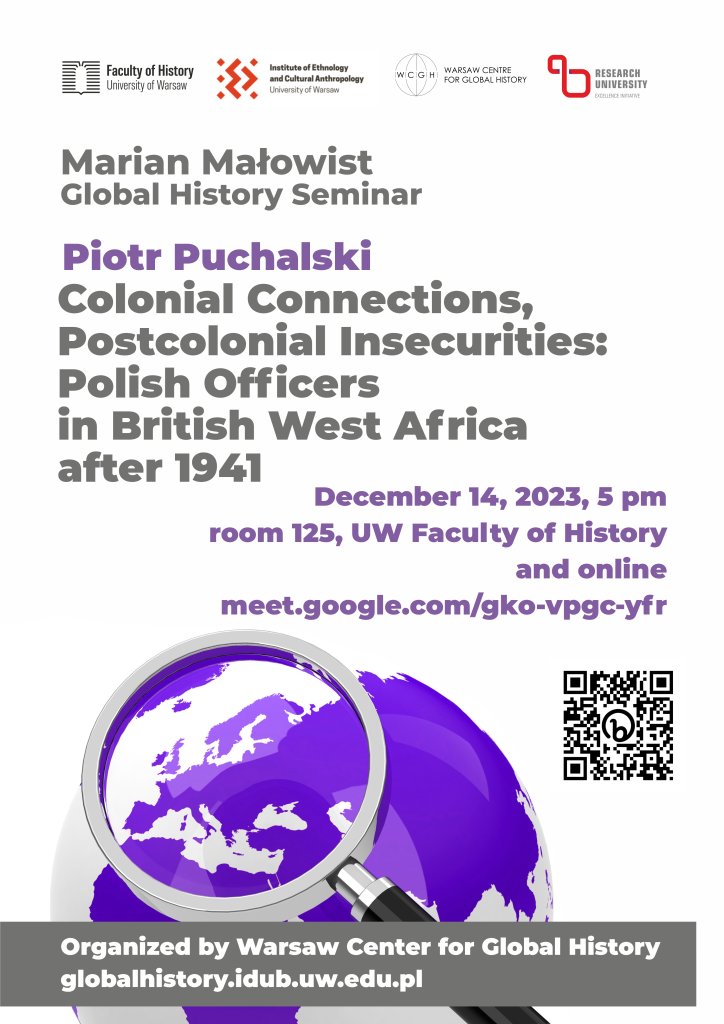Marian Małowist Seminar – “Colonial Connections, Postcolonial Insecurities: Polish Officers in British West Africa after 1941”, 14.12.2023

Within the framework of the Marian Małowist Seminar, we are glad to announce an upcoming lecture – “Colonial Connections, Postcolonial Insecurities: Polish Officers in British West Africa after 1941”.
The lecture will be delivered by Piotr Puchalski (University of the National Education Commission) on 14th of December 2023, 5 p.m., room 125 of the Faculty of History (University of Warsaw).
The participants may also join the meeting online (details can be found below).
Before joining the meeting, the participants are kindly advised to read the following abstract:
Starting in 1941, the British army recruited Polish officers in Scotland for service in the Royal West African
Frontier Force, whereas two years later, the British authorities hosted Polish refugees from the Soviet Union in
camps set up across their colonies in East Africa. Together, this was the greatest Polish influx into Africa in
history, which resuscitated Poland’s prewar plans of engagement with the continent but also encouraged more
critical Polish stances on colonialism and Poles’ own position in colonial hierarchies. In turn, the British attitudes
toward the Polish presence in Africa fluctuated, with particularly Polish refugees viewed as detrimental to British
propaganda (as demonstrated by Jochen Lingelbach). Nonetheless, unlike the later refugees, the Polish officers
training and fighting with indigenous soldiers in the Gold Coast, Nigeria, Sierra Leone, and Gambia also fulfilled
non-military roles as cultural propagandists and social liaisons to the Africans. In my presentation, I will therefore
explore the ways in which discourse about race and German atrocities was used for political purposes by British,
Polish, and, to a lesser extent, African soldiers and officials.


